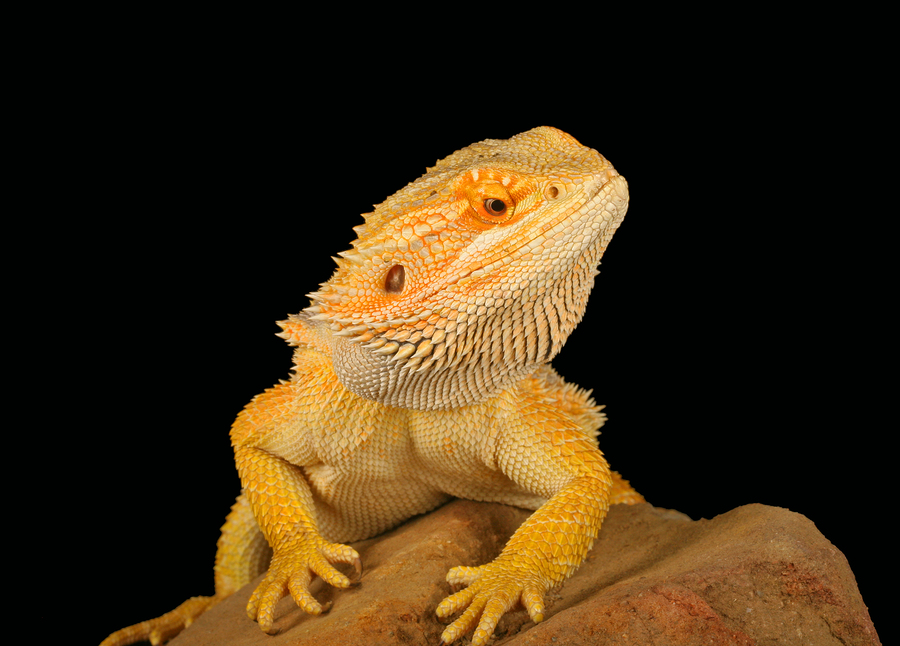A reader asked for the low-down on bearded dragons as pets. Here’s what I know.
Q: I’ve just acquired a bearded dragon. What should I know about taking care of him?
A: Congratulations on your new reptile companion! Bearded dragons are popular because of their small size, quiet nature and variety of colors. They enjoy basking in the sun and are typically active during the day. With good care, you can expect your bearded dragon to live eight to 12 years.
Even though they aren’t especially large, bearded dragons need a good-size habitat. A 40- to 55-gallon aquarium is the minimum amount of space you should provide. Larger is better. You’ll need to equip his living area with full-spectrum lighting for 12 hours a day. He also needs an appropriate temperature range. During the day, he should be able to move from a hot basking area that ranges from 95 degrees Fahrenheit to 105 degrees Fahrenheit to a slightly cooler area of no less than 80 degrees Fahrenheit. Other important features are a box or other area where he can hide, and surfaces on which he can climb and bask.
Bearded dragons eat a variety of insects and leafy greens. Juvenile bearded dragons will thrive on crickets, mealworms and other gut-loaded insects offered daily, but as they mature, they eat more vegetable matter. Offer a daily buffet of dark leafy greens and shredded veggies. Ask your veterinarian to recommend an appropriate vitamin and mineral supplement for your bearded dragon’s life stage.
Take your bearded dragon to a veterinarian who specializes in reptile care. A visit every six to 12 months will help to ensure that he’s in good condition and isn’t carrying any internal parasites such as pinworms or coccidia. Common health problems include fungal dermatitis (yellow fungus), obesity, constipation from chronic dehydration, poor diet, lack of exercise and, believe it or not, periodontal disease. Yes, you should brush your bearded dragon’s teeth! Your veterinarian can advise you on the best technique.


